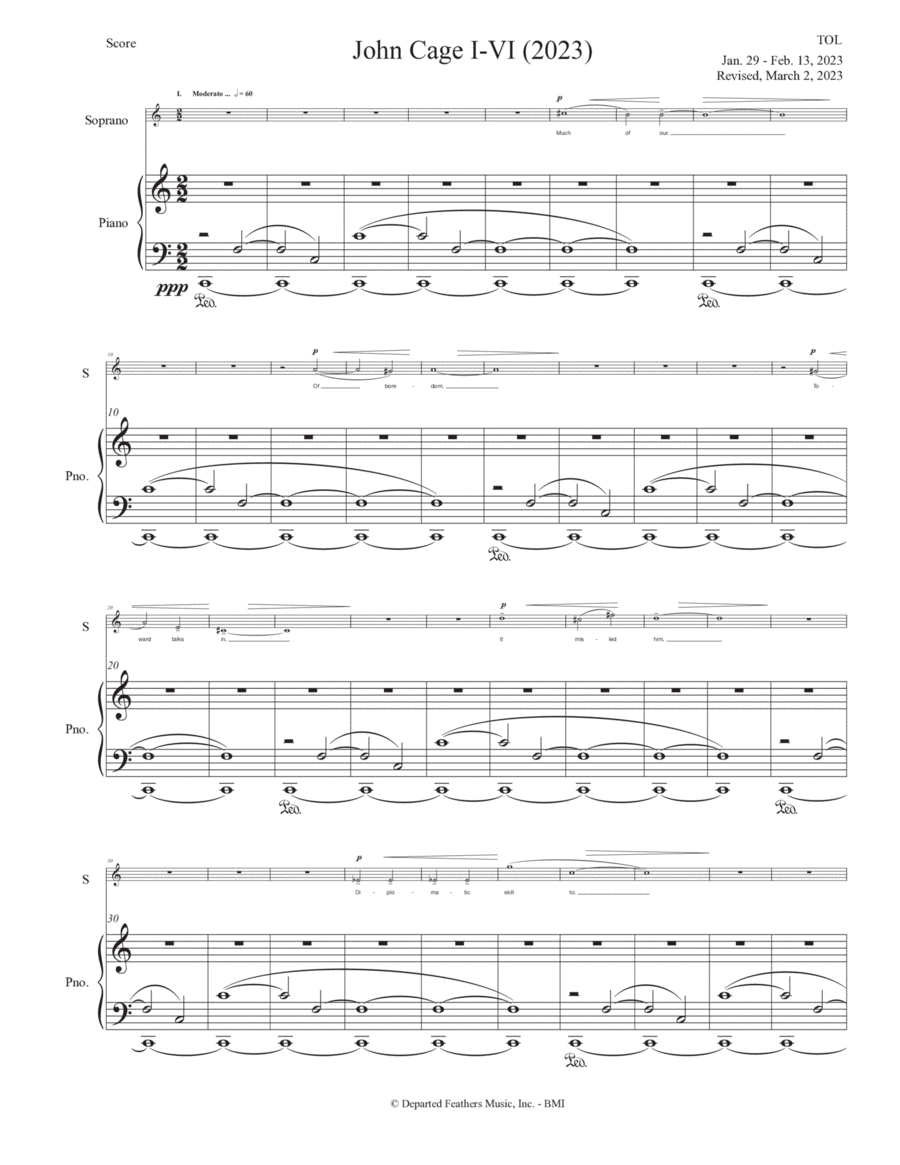Piano,Vocal,Voice - Level 4 - Digital Download SKU: A0.1180574 Composed by Thomas Oboe Lee. 20th Century,Chamber,Contemporary. Score. 24 pages. Thomas Oboe Lee #780478. Published by Thomas Oboe Lee (A0.1180574). John Cage and I share the same birthday: September 5th. He was born in 1912 and my birth year is 1945. There must be some cosmological link between us because he has always intrigued me - philosophically and musically. Recently I was in my colleague Prof. Jeremiah McGrann's office waiting for him to join me for a martini lunch after a day of teaching. I noticed on his desk a hardcover copy of John Cage I-VI. I asked what it was and he said it is John Cage's Charles Elliot Norton Lecture he gave at Harvard University in 1988-89. I looked inside and there were these mesostics. Very sparsely distributed on each page, and it looked fascinating, like some hieroglyphic art. I was immediately intrigued by it and thought right on the spot that I should buy a copy and maybe create a song cycle from the texts. Upon further research, I found out that John Cage compiled the content for his lecture using excerpts from works by Thoreau, Emerson, Wittgenstein, McLuhan, Buckminster Fuller, plus passages from The Wall Street Journal, The Christian Science Monitor and The New York Times. He then created the final text for his lecture by using chance operations with the assistance of a computer program that he created. And so I did the unthinkable, create a song cycle of words that has no meaning nor narrative in the traditional sense. Quoting John Cage: I have nothing to say, I am saying it, and that is poetry. John Cage I-VI (2023) is in six movements, scored for soprano and piano.
